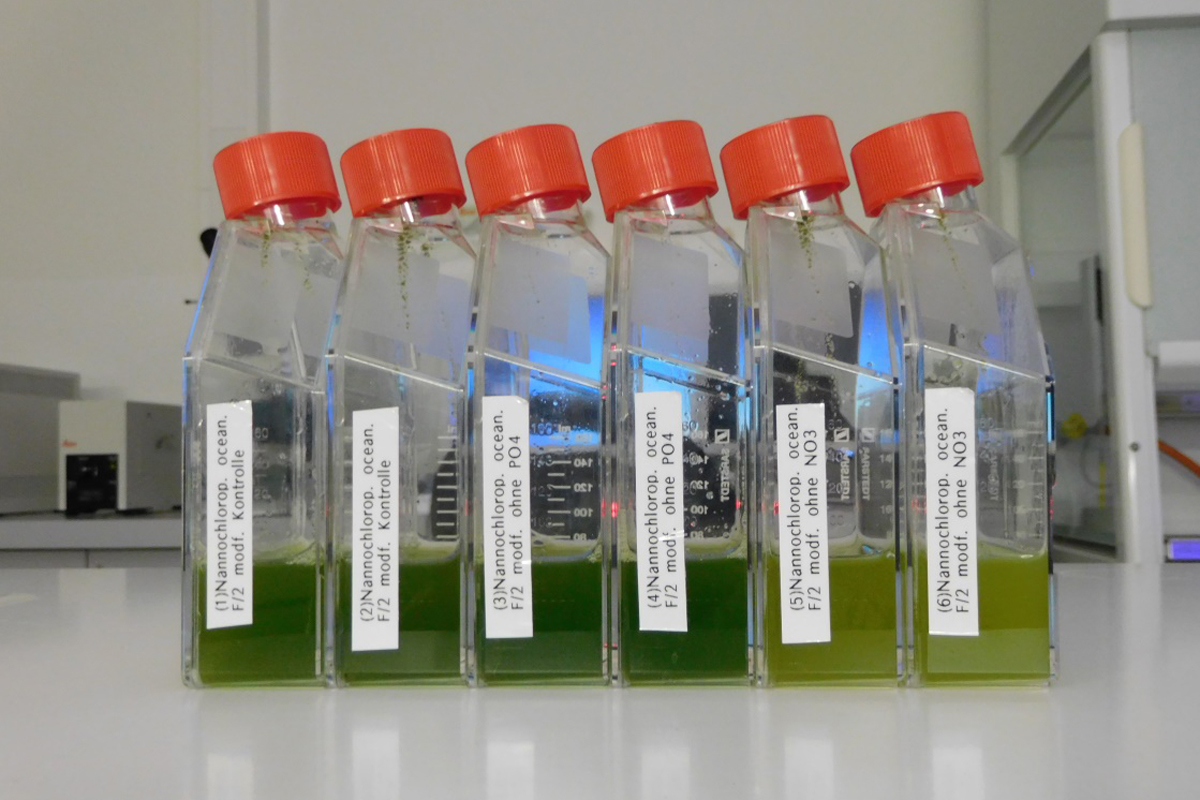
MICRO-Feed
Microbial raw materials as source for protein and EPA and DHA for use in aquafeed (MICRO-Feed)
The aquaculture industry contributes with half of the global seafood consumption and this share is expected to increase. Limited availability of marine raw materials has created a need for new sustainable feed resources to cover the need for proteins and EPA/DHA to ensure the future growth.
MICRO-Feed focusses on two groups of microorganisms: 1) the heterotrophic thraustochytrids, which accumulate high levels of DHA-rich lipids, and 2) phototrophic microalgae, rich in EPA and/or DHA. Both groups can be cultured based on sustainable carbon and energy sources (light/CO2 and organic waste) and have high protein contents. The EPA/DHA-contents and the productivities will be increased by optimization of the cultivation conditions to utilize the maximum physiological potential of the strains, and by applying selection pressures to enrich for improved strains. Several up-scaling steps will be included during cultivation. The microbial biomass will be evaluated in feeding experiments with salmonids, European seabass and tilapia, by analyzing digestibility, growth and functionality.
The conducted optimization experiments at ILU e.V. showed great success in the enrichment of fatty acids in algal biomass. In comparison to classical cultivation procedures the lipid content in some algal species was increased several fold. Scale-up cultivations for outdoor mass cultivation have been successfully conducted and reached the 1500 L scale. Within the project, analytical obstacles occurred and were successfully overcome with the establishment of a novel and sensitive single-cell analytical technology which is based on epifluorescence microscopy and automated image analysis. This technology was able to reveal deep insights into the dynamics of cell suspensions during lipid production under stress conditions.
PROJECT DURATION:
2015-2018
PROJECT SPONSOR:
German Federal Ministry of Food and Agriculture (BMEL)
GRANT-NUMBER-PN:
2814ERA03G
PROJECT MANAGER:
Dr. Michael Sandmann
PROJECT PARTNER:
NORWAY SINTEF - Research organization NTNU Technical and Natural Sciences University of Norway TURKEY Ege University and MEDFRI ICELAND Matis ltd. - Icelandic Food and Biotech R&D